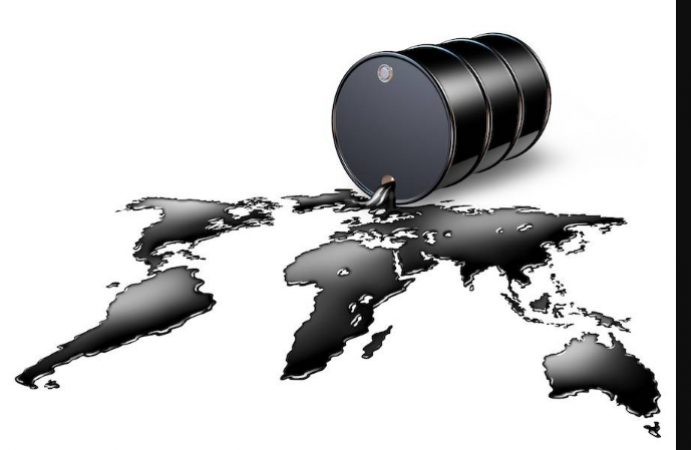
London - Oil prices experienced a notable uptick on Monday, with Brent crude oil prices surging by 1.2% to reach $104.70 per barrel. This increase in oil prices can be attributed to growing apprehensions regarding potential supply disruptions originating from Russia.
The United States and its allies are contemplating a ban on Russian oil imports, which would add further strain to an already tightly balanced global oil market.
The ongoing conflict in Ukraine has already had a pronounced impact on oil production and exports from Russia. As the world's second-largest oil producer, Russia plays a pivotal role in global oil supply chains.
Also Read: Russian Businessman Gets 9 Years in US Prison for Hack-and-Trade Scheme
Consequently, any ban on Russian oil imports would reverberate throughout global energy markets, exerting significant influence on the supply-demand dynamics.
The surge in oil prices is not solely a response to supply concerns; it is also fueled by apprehensions surrounding the global economy. The U.S. Federal Reserve's anticipated interest rate hike, designed to combat inflation, has the potential to slow economic growth and diminish oil demand.
However, at present, supply concerns are outweighing worries about economic growth, which is keeping oil prices elevated. This trend is likely to persist in the near term, setting the stage for continued volatility in oil markets.
Also Read: US Stocks Rise as Investors Analyze Federal Reserve Meeting Minutes
Impact of the Ukraine Conflict on Oil Supply
The war in Ukraine has undeniably disrupted oil production and exports from Russia, a country pivotal in global energy markets. Key aspects of this situation include:
1. Potential Ban on Russian Oil Imports: The consideration of an import ban on Russian oil by the United States and its allies has intensified concerns about supply disruptions. Such a move would have far-reaching implications for global oil markets, given Russia's substantial contribution to global oil supply.
2. Russia's Role in Global Oil Production: As the world's second-largest oil producer, Russia's significance in the oil industry cannot be overstated. Any supply disruption from Russia has the potential to cause ripple effects, impacting global energy prices.
3. Economic Growth and Demand: While the global economy is facing slowdowns, demand for oil remains robust. The rise in oil prices poses concerns for businesses and consumers, as it could lead to increased costs for gasoline, diesel, and other fuels. Additionally, elevated oil prices have the potential to dampen economic growth.
4. Uncertainty and Volatility: The oil market is characterized by its inherent volatility, making it challenging to predict future price movements with precision. Nevertheless, the prevailing sentiment suggests that oil prices are likely to remain elevated in the short term, primarily driven by ongoing supply concerns.
Navigating the Road Ahead
The dynamics of the oil market are subject to a multitude of variables, encompassing geopolitical developments, economic conditions, and supply-demand balances. Navigating these complexities necessitates a nuanced perspective:
1. Geopolitical Factors: The ongoing conflict in Ukraine and potential bans on Russian oil imports are key geopolitical factors influencing oil prices. These dynamics underscore the importance of monitoring global events and their impact on energy markets.
2. Economic Considerations: The global economic landscape remains fluid, with concerns about inflation and interest rate hikes. Balancing the need to combat inflation with the imperative of maintaining economic growth is a central challenge for policymakers and market participants.
3. Supply-Demand Balance: The equilibrium between oil supply and demand will continue to play a pivotal role in shaping oil prices. Factors such as production levels, consumption patterns, and geopolitical disruptions all contribute to this delicate balance.
4. Volatility Mitigation: Businesses and governments alike must be prepared to manage the potential ramifications of volatile oil prices. Diversification of energy sources, energy efficiency measures, and strategic reserves can help mitigate the impact of price fluctuations.
The surge in oil prices, driven by mounting supply concerns emanating from Russia and concurrent worries about the global economy, is a complex issue with multifaceted implications.
Also Read: Tesla Explores the Creation of a Pioneering Lithium Refining Facility in Texas
The outlook for oil prices remains uncertain, characterized by ongoing volatility and the potential for further disruptions. As the world grapples with these challenges, vigilance and adaptability will be essential in navigating the ever-evolving landscape of global energy markets.